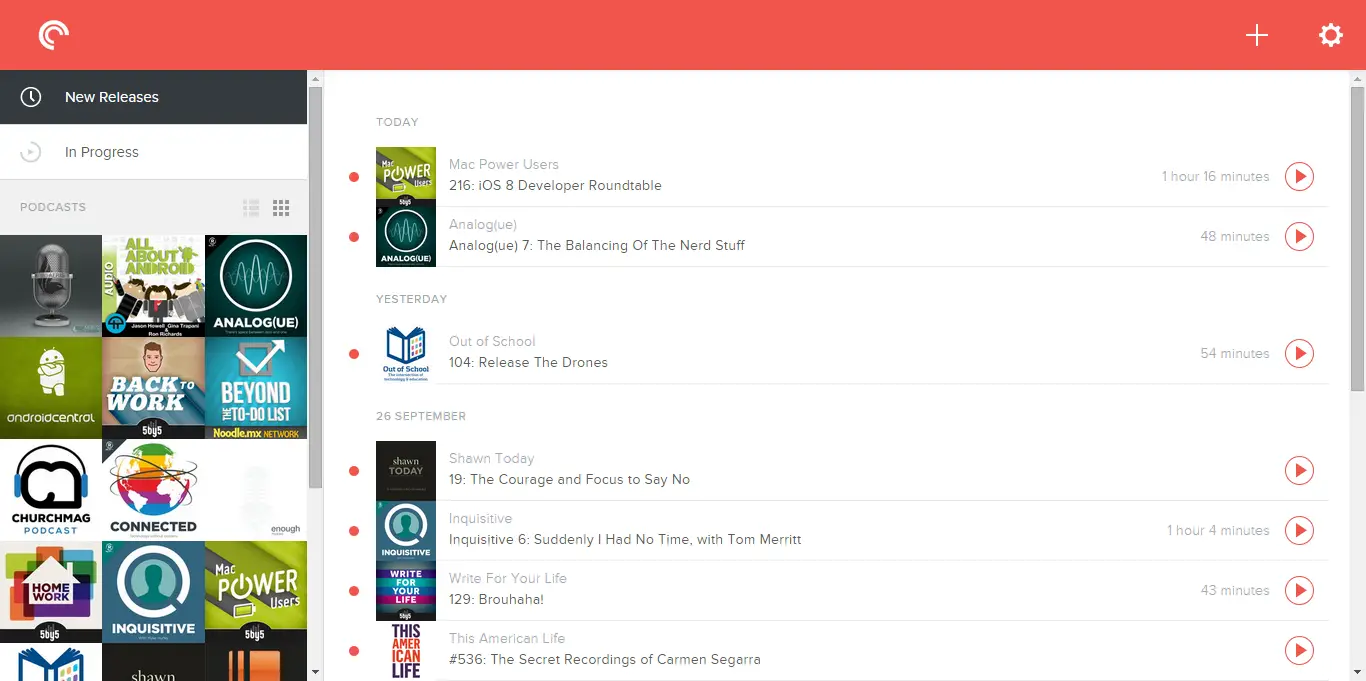

- Pocket casts chrome extension code#
- Pocket casts chrome extension Offline#
- Pocket casts chrome extension free#
The article is then sent to the user's Pocket list (synced to all of their devices) for offline reading. The application allows the user to save an article or web page to remote servers for later reading.
Pocket casts chrome extension code#
There are plans to open-source the server-side code of Pocket, though only parts of the code have been open-sourced as of 2023. Mozilla staff stated that Pocket would continue to operate as an independent subsidiary but that it would be leveraged as part of an ongoing "Context Graph" project. On February 27, 2017, Pocket announced that it had been acquired by Mozilla Corporation, the commercial arm of Firefox's non-profit development group. The spokesperson added that " gotten lots of positive feedback about the integration from users". A Mozilla spokesperson stated that the feature was meant to leverage the service's popularity among Firefox users and clarified that all code related to the integration was open source. The integration was controversial, as users displayed concerns for the direct integration of a proprietary service into an open source application, and that it could not be completely disabled without editing advanced settings, unlike third-party extensions. In June 2015, Pocket was included in Firefox, via a toolbar button and link to a user's Pocket list in the bookmark's menu. In May 2014, a paid subscription service called Pocket Premium was introduced, adding server-side storage of articles and more powerful search tools.
Pocket casts chrome extension free#
After the rebranding to Pocket, all paid features were made available in a free and advertisement-free app. Initially the Read It Later app was available in a free version and a paid version that included additional features. The company rejected an acquisition offer by Evernote after showing concerns that Evernote intended to shut down the Read It Later service and amalgamate its functionality into Evernote's main service. The 2011 funding came from Foundation Capital, Baseline Ventures, Google Ventures, Founder Collective and unnamed angel investors. Read It Later obtained venture capital investments of US$2.5 million in 2011 and $5.0 million in 2012. Weiner's intention was to have the application be like a TiVo for web content and giving users access to that content on any device. Once his product was used by millions of people, he moved his office to Silicon Valley and four other people joined the Read It Later team. Pocket was introduced in August 2007 as a Mozilla Firefox browser extension named Read It Later by Nathan (Nate) Weiner. Released in 2007, the service was originally only for desktop and laptop computers and is now available for macOS, Windows, iOS, Android, Windows Phone, BlackBerry, Kobo eReaders, and web browsers. Pocket, previously known as Read It Later, is a social bookmarking service for storing, sharing and discovering web bookmarks. Android, BlackBerry, iOS, Kindle Fire, Kobo, macOS, web browsers, Windows, and Windows Phones


 0 kommentar(er)
0 kommentar(er)
